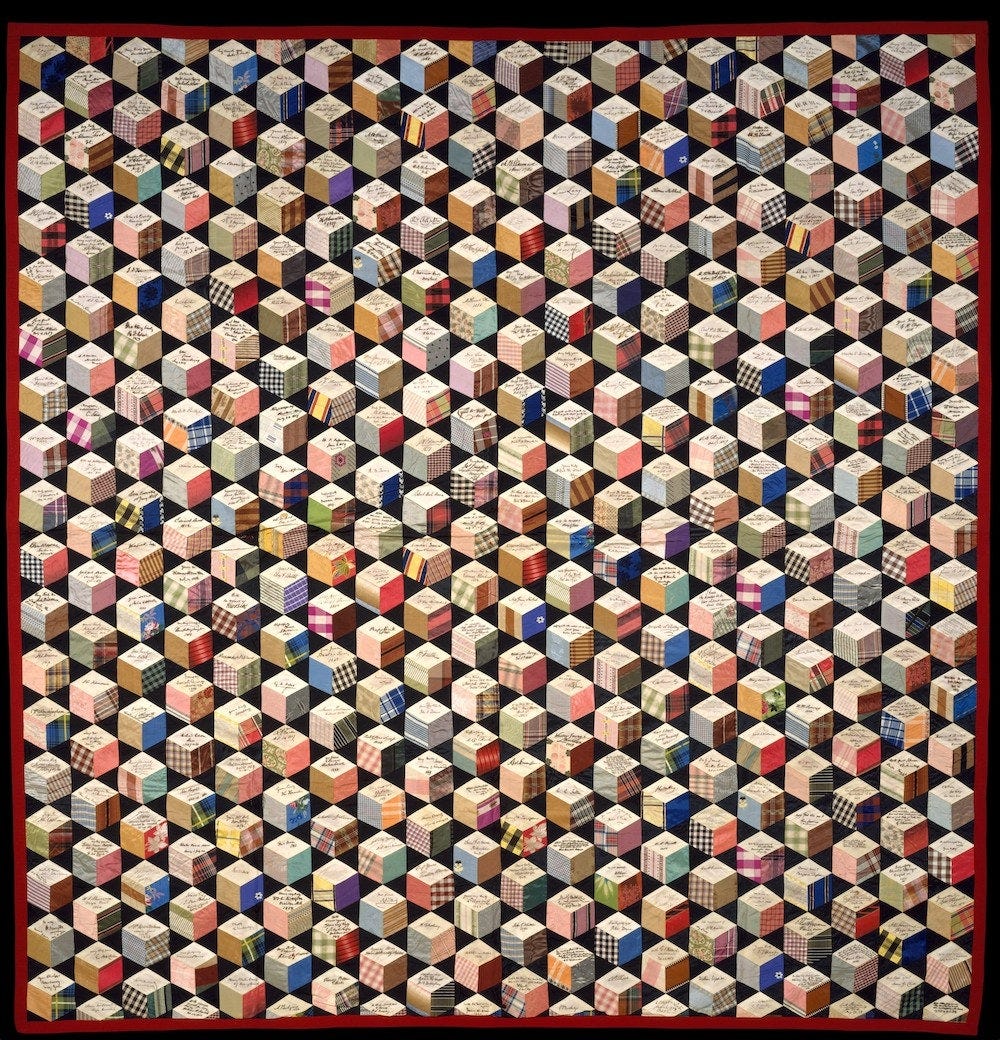Considering Boycotts
In a special issue, we imagine the possibilities--and the confusions--of consumer activism. Plus, the Paris Commune and our columnists
Adeline Harris’s Celebrity Autograph Quilt (1868). Image credit: Public Domain Review
Special Issue: Boycotts
Claire Potter, “It’s Time to Ask New Questions About Boycotts: Named after an obscure English estate agent, a tactic that harnesses consumer power to make political change has had many incarnations.” (May 18, 2021)
Marc Stein, “When a Boycott Blocks Queer Research: California LGBT legislators convinced their colleagues to prohibit spending public funds in states with anti-LGBT laws—and created roadblocks for researchers who could help solve the problem.” (May 18, 2021)
Anita L. DeFrantz, “The US Olympic Team with No Results: A boycott ended hundreds of gold medal dreams in 1980—to what purpose?” (May 18, 2021)
Anastasia Mgaloblishvili, “When Political Institutions Fail, Boycott and Street Protests Can Succeed: In the face of a corrupt election, opposition parties refuse to participate in governing the Republic of Georgia, forcing an intervention from the European Union.” (May 18, 2021)
Allyson Brantley, “Taking on the Coors Brewing Company—and the Conservative Family Behind It: Consumer activists taking on the companies that support former President Donald Trump can learn from the boycott that never ended.” (May 18, 2021)
History Revisited
Mitch Abidor, “The Paris Commune—Myth Made Material: As George Sorel explained, myths “provide an intelligible exposition of the passing of principles into action.” (May 18, 2021)
Our Columnists
Heather Cox Richardson, “Can Joe Biden Stay Above the Fray? The President is quietly trying to rebuild the economy while Republicans tear each other apart.” (May 19, 2021)
John Stoehr, “There’s Just One Reason to Oppose a Bipartisan Commission to Investigate the 1/6 Insurgency: Are the House Republicans afraid of what it will find?” (May 19, 2021)




